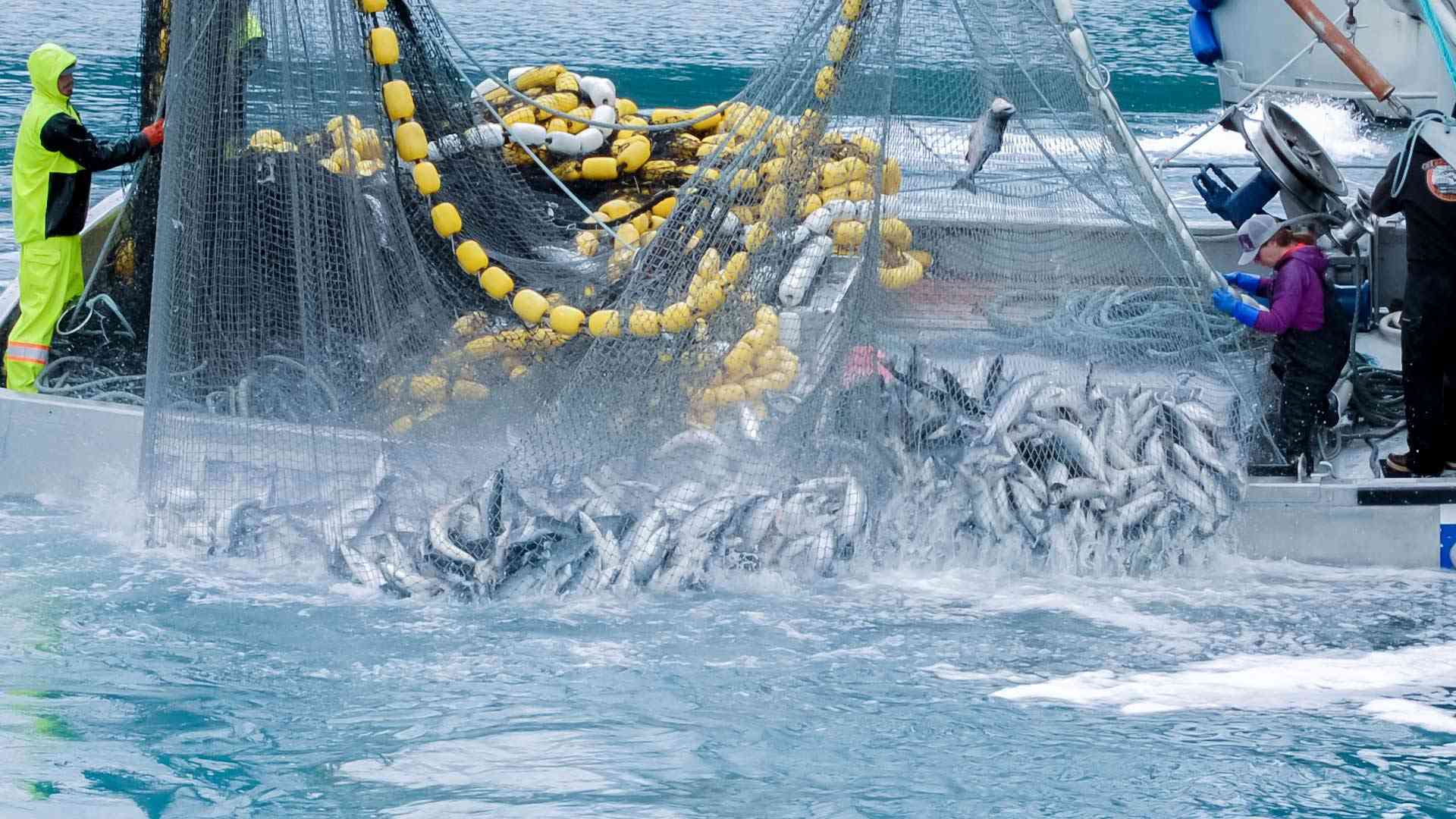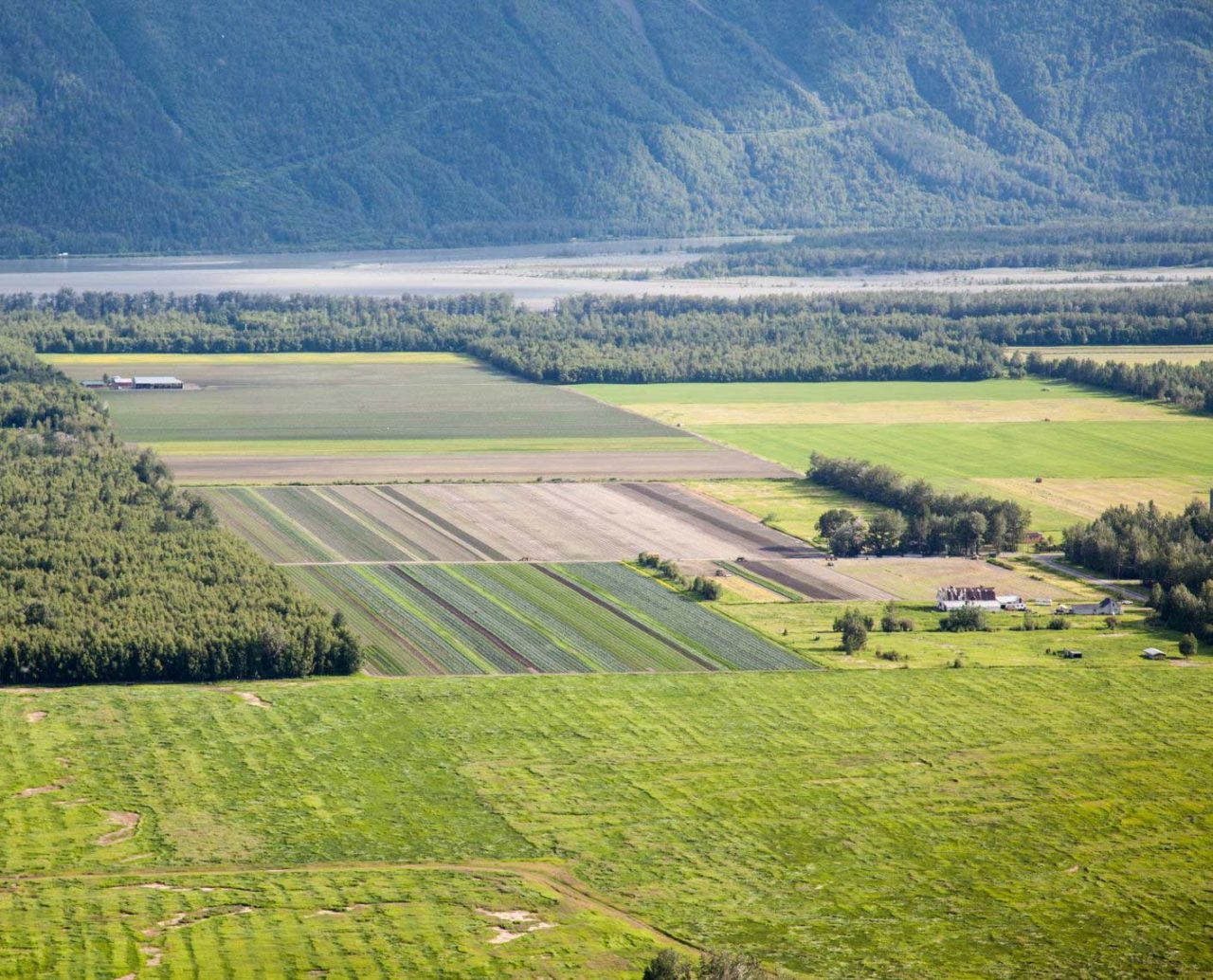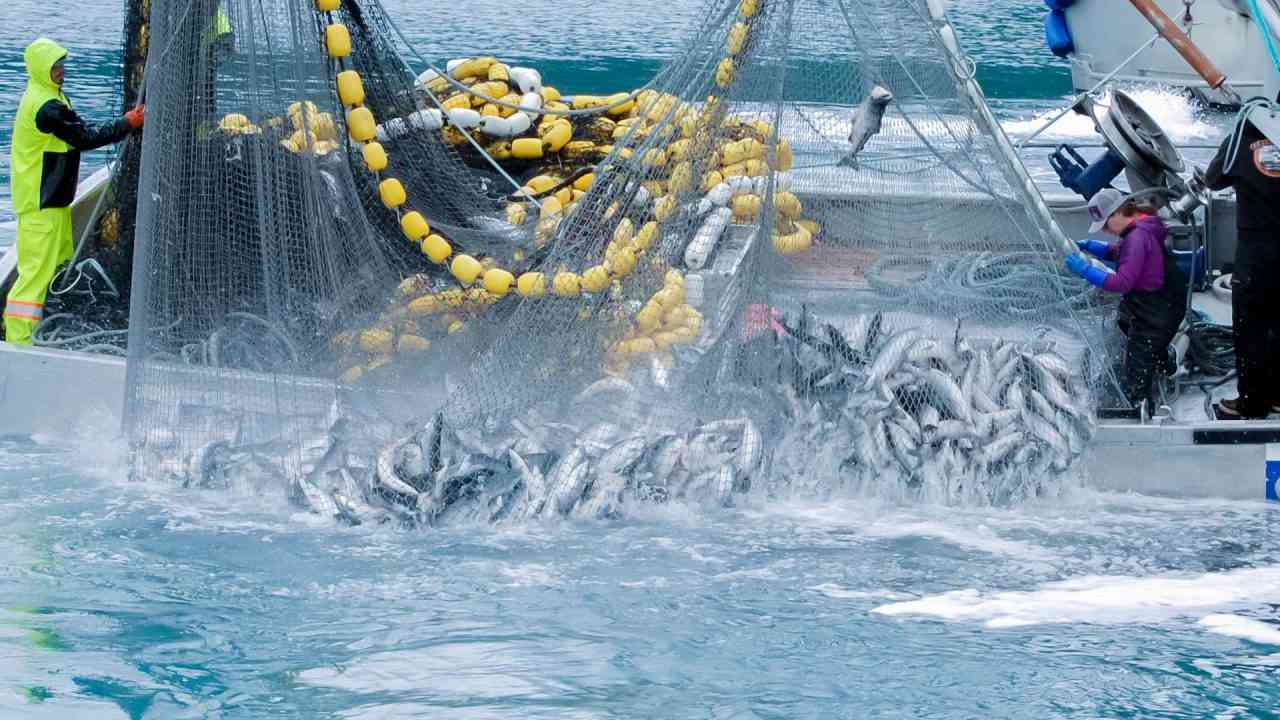
Gov. Mike Dunleavy ordered the creation of a food security task force to help reinforce Alaska’s local food sources and positioning the state to handle future supply chain disruptions.

The Feb. 9 order establishing the new task force states that Alaska currently imports 95% of its food at a cost of $2 billion per year.
The 18-member task force will be charged with figuring out how to lower that number by increasing food production and natural harvests across the state. Part of the solution will be to look at any laws or state regulations that hinder or prevent Alaska from achieving greater food security.
“Over the past two years Alaskans have walked into grocery stores and been greeted by row after row of empty shelves,” Dunleavy stated in announcing the task force. “One of the lessons the pandemic taught us is how vulnerable Alaska could be if the regularly scheduled shipments of food shipped up from Seattle were to suddenly stop – even a few days.”
He noted, however, that Alaska has the potential to increase its food supply by expanding agriculture and fishing as well as encouraging more natural harvesting of fish and game.
“The recommendations from the task force will draw a roadmap for my administration, legislators and Alaska’s food producers to make Alaska more food secure the next time the supply chain is disrupted,” Dunleavy added.
The main duties of the task force include the following:
— Recommend ways to increase the procurement and use of Alaska-sourced foods within state and local agencies, institutions, and schools.
— Identify any administrative and statutory laws that need changing.
— Identify barriers that farmers, ranchers, fishermen and others face when starting a business or getting their products in to the Alaska market.
— Assess the levels of wild game and fish harvests in Alaska, and suggest was to increase the harvest of wild game, fish, and food.
ALASKA WATCHMAN DIRECT TO YOUR INBOX
— Find ways to assist communities and households impacted by fishery shortfalls and disasters.
— Identify research needed to support and encourage increased consumption and production of Alaska-sourced food.
— Seek input from the public on the above issues.
— Examine the need for disaster food caches and how they can be developed with Alaskan-sourced foods.
The task force will be made up of 16 voting members with the chair regularly reporting to the governor. Twelve members will represent a cross section of the state’s farming, mariculture and seafood industries, and four others will be state commissioners (or their designees) from the departments of Natural Resources, Fish and Game, Environmental Conservation and Military and Veterans Affairs. Two ex-officio members from the Alaska House of Representatives and the Alaska State Senate are to be appointed by the Senate President and the Speaker of the House.
The Task Force will issue a report on its findings and recommendations by Sept. 1, 2022.







12 Comments
This will be another feel good giveaway of tax dollars to special interests to earn votes during an election year. I grew up on a farm, but couldn’t qualify for any state program because I hadn’t farmed “recently.” So, no I don’t think they want to help people start farming. As for fishing, why don’t they start with the millions of pounds of salmon bycatch wasted each year? Just go away, lying Mike, you won’t even stand up for the PFD. Why would anyone believe you can change something as complex as Alaska’s food supply?
Like all the other great plans by the tall one. Too little too late. We could be hungry in two weeks.
I totally agree – a little too late now to think of food security. This should of been done years ago. Oh and we get a report in Sept 2022? – surely thats gonna help us make it through what has been happening for years here in Alaska. It;s like our governor wants to only give lip service and say things that sound good, but virtue signaling with catchy headlines and sound bites on real issues is never enough.
Hmm, off the cuff with 2 min worth of thinking…….Fish. Get commercial fishing boats out of the way, let our stream and rivers fill up. Or force them to sell alaskans fish at the price they sell to processors. Get more cattle. Provide land for farms, and use forced prison labor to support them. Zero or super low interest loans for personal garden and food storage with 50 year terms. Our oil wealth should have been used for this. Leaning forward to solve an obvious issue thats ALWAYS existed here, too late for that now, better late than never? We shall see.
The Alaska DEC is more intrested in regulating small producers out of the market than growing Alaskan ag. If the Alaska Department of Agriculture was doing their job he wouldn’t need an 18 person task force. They would be able to answer any questions he had. Again, they are more interested in regulation of hemp and controlling farmers than they are growing the state. The nice thing is that these regulations are producing a healthy black market and food, and causing more people to lose faith in government.
The Alaska DEC is more intrested in regulating small producers out of the market then growing the state. If the Department of Agriculture was doing their job the governor wouldn’t need an 18 person task force to answer these questions. Again they are more interested in regulation then promotion. There is a healthy food based black market forming though, so that’s nice.
Dumbleavy – a day late, and a dollar short – again…
The loss of the seafood processing plant in Anchorage ( now Changepoint) was a huge setback for local food production. All those jobs went overseas , mostly to China, which in turn markets the processed Alaska seafood all over the world!!. Something should have been done to make it all happen here!!
Just had to come back to this article hours later, after first reading it, to say … That is SO WEAK-HANDED of our governor … either he is completely out of touch – OR – dragging his feet on any real change or chance of survival as a State … as to help the GLOBALIZERS overtake us with the GREAT RESET. Yeah you know the slogan ” You’ll have nothing and like it.” Either way it ain’t good! This issue needs to be FIRST PRIORITY or we will have no ability to keep our FREEDOMS or our LIVES. Time to speak out and be heard! Enough is Enough!
Interesting to include Military and Veterans Affairs. I wonder why? This sounds good and could be if gov. REALLY supported the business of producing food and harvesting without politics and over regulating. .Could be good, but what we have seen with regulatory boards, which sounds like would be part of this, is they make more rules for the common people, which includes more paperwork, which sooner or later comes with fees and then those fees increase. The whales are too many also and should be harvested. Can you go against politics to do what makes sense for our food supply? Sea otters are needing reduced and the House didn’t let a bill be heard that would have helped that a couple years ago. The sea otters already have destroyed one fisheries and are now working on emptying bays of crab. The environmentalists are not going to be helpful on this board. Already they saved the whales right? Now they need harvested. I am part Tlingit and Haida. The Tlingit use to harvest whales, but part of the agreement in 1970 was to not harvest whales anymore. Change that and allow for whaling again. Allow EVERYONE to harvest sea otter long enough to bring the numbers down. Allow for the sale of raw milk in the stores. The Weston A. Price Foundation can teach how safe and valuable it is. Ask the people for ideas and leave out the special interest politics. Are the people who run the Farmers Summits included in this board? They should be.
The task force should look at the millions of tons of Halibut discarded as “bycatch” by the Alaska trawl fleet each year, what a fkn joke.
This comes up every 4-5 years. The company I work for was invited by the state to bid on stocking state-owned warehouses of long term freeze dried food for emergencies. We put in a bid, contract communications went radio silent. Never to be heard of again. The state does not really care about Alaskans, just state employees. Remember that.